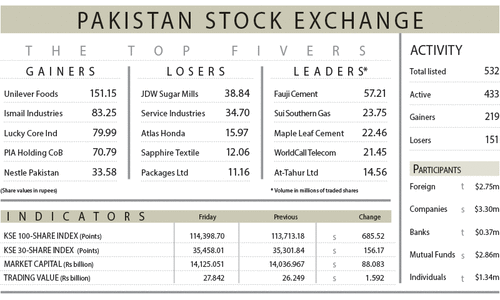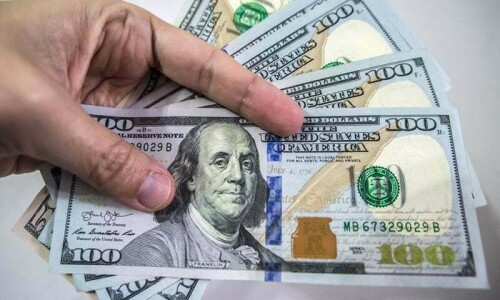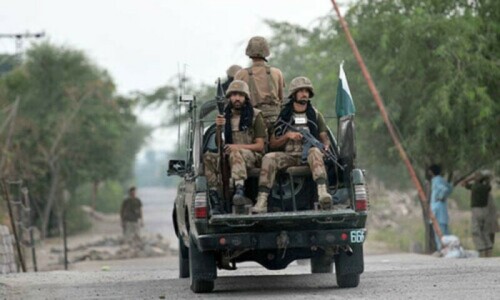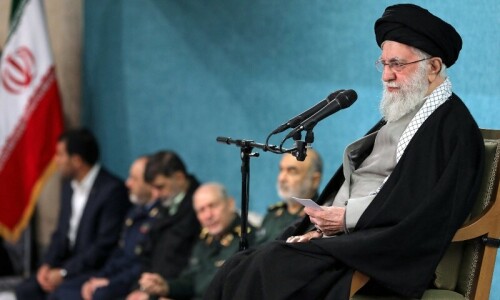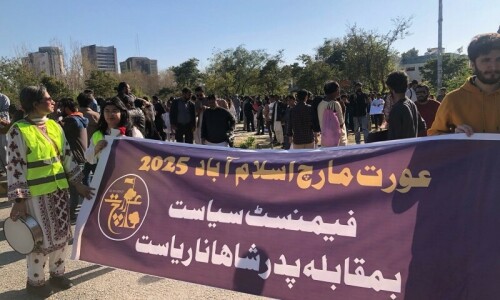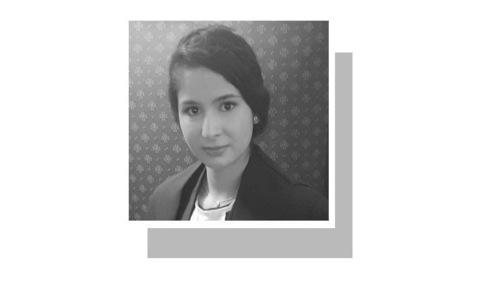THE plastic industry is one of the leading business sectors of Pakistan, posting a growth rate of more than 15 per cent a year on an average.
There are, however, rampant violations of laws and regulations taking place within the industry, especially when it comes to processing, manufacturing and recycling hazardous plastic materials.
Negligence in this regard puts both environment and the lives of citizens at stake. Local plastic manufacturers use imported plastic scraps and waste to produce finished plastic goods and articles. The plastic scraps used for manufacturing are in no way tested for contaminants before being cleared for manufacturing. It is a clear and blatant violation of the import policy order put in place by the government.
Furthermore, it violates the Basel Convention that draws out the scope of end-of-life plastic products which contain contaminants and constituents that fall under hazard class 6 and 9 of the convention and are to be sent back to the country from where the plastic waste was imported from.
The most worrying fact is that plastic scraps imports jumped by a staggering 200 per cent year-on-year to 46,992 tonnes in 2017. These imports normally come from countries like Britain, Belgium, Canada, Germany and Saudi Arabia.
Imported plastic scrap contains higher amounts of contamination residuals, pest dumps, germs and infections, pesticides, food particles and other harmful chemicals and additives. Many countries, including China, have banned such imports.
The Import Policy Order 2015 of Pakistan states that the waste parings and scrap of plastics imported by local manufacturers are subject to the condition that a certificate from the relevant government agency of the exporting country should be furnished to the custom authorities to establish that the imports are non-hazardous and comply with the provisions of the Basel Convention.
To strictly execute the said policy, however, the role of customs authorities and environmental inspection agencies stands crucial, because if these plastic imports go unchecked the hazardous plastic scrap would cause serious diseases and infect humans.
The import policy is comprehensive and provides clear guidelines about effectively regulating hazardous plastic imports, but a lack of proper enforcement raises a number of red flags.
Despite the aforementioned comprehensive import policies, local plastics manufacturers in Pakistan are heavily producing those plastics and plastics-based items for both domestic and industrial consumptions that contain higher amounts of several hazardous elements and components. That is because the hazardous products are being released without detailed pre-shipment laboratory analysis in violation of the laws of the country.
The unabated import of hazardous plastic scrap, due mainly to lack of the implementation of laws, has increasingly become a source of concern for the local industry and Pakistan Environmental Protection Agency. Such a lax regulation mechanism virtually nullifies the very reason the import policy was put in place by the Ministry of Commerce, followed by the order passed by the Lahore High Court in 2015.
Countries like China, India and Malaysia have banned outright the import of such hazardous polyvinyl chloride, or PVC, materials and every consignment coming into these countries is tested on different levels.
China was considered the biggest importer of garbage, but after it announced that it will halt the import of such waste, there has been a considerable increase in the imports of plastic waste in Pakistan.
The writer is a freelance journalist
Published in Dawn, The Business and Finance Weekly, March 19th, 2018



